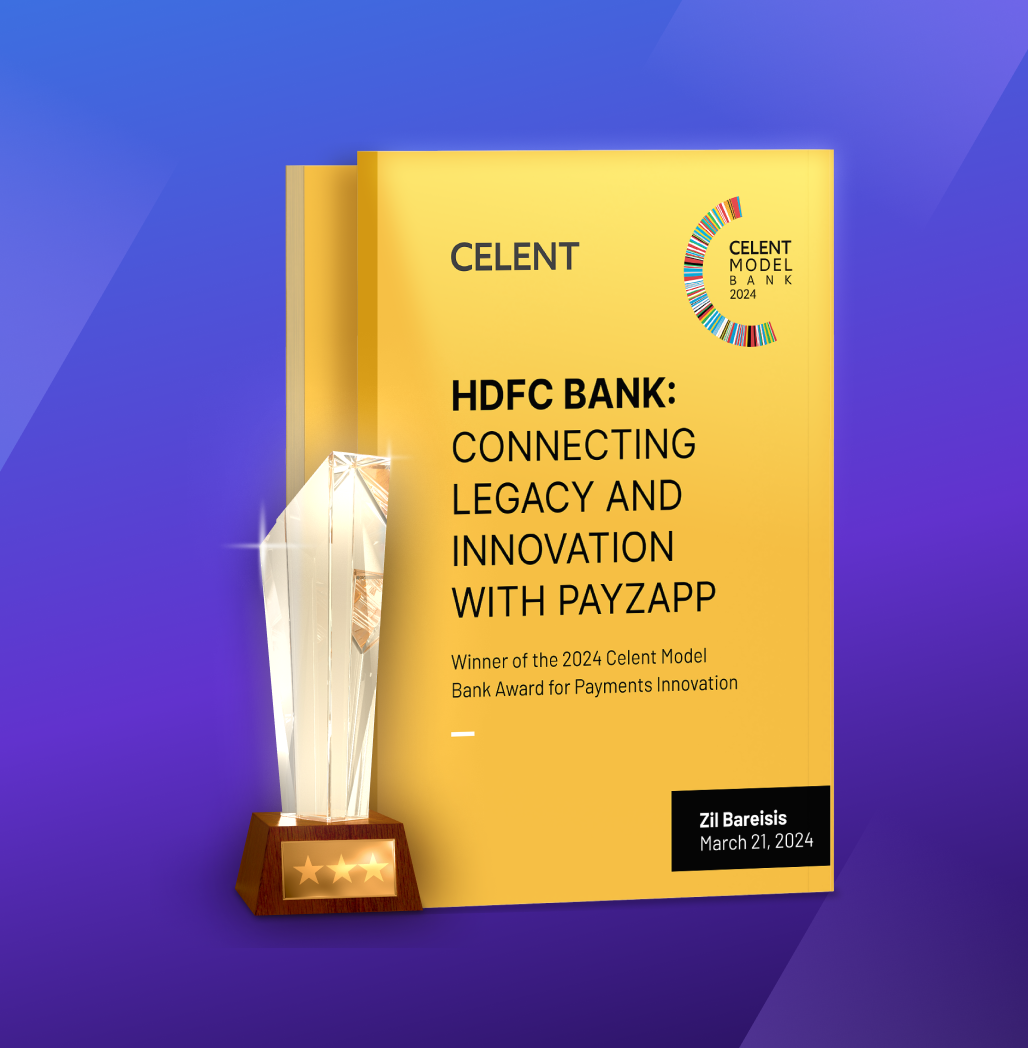Zeta’s Return to Office (RTO) Rationale

Introduction & Context
At Zeta, we are building next gen banking tech for enterprise banks. Our vision is to enable the world’s largest financial institutions that are handicapped by legacy core processing and banking platforms to deliver digital first products to their customers. 1800 amazing Zetanauts are working tirelessly towards this outcome. We have written this post to share our perspectives on working from office versus working from home. Also, while this is a public post – it is contextual to Zeta and as our goal is not to opine on general applicability to other organizations.
TL;DR version
In “our opinion” the cumulative benefit of working together in the office, for Zeta and its employees, outweighs the cumulative benefits derived by Zeta and our employees working from home.
Working from office we believe results in –
- Accelerated learning
- Faster innovation cycles
- Quicker percolation of culture
- Faster decisions
- Higher productivity
- Quicker incident resolution
- Lower data security risk
It is our belief for companies that are fully remote –
- The companies on an average will be slower at disruptive 0-1 innovation
- The employees at these companies will have a slower learning curve
In order to understand our rationale in its entirety, we respectfully ask you to read the longer version below. Also note that this document represents our opinions. We certainly believe that there are exceptions to the opinions below. But statistically speaking, we believe each principle below will apply more often than not apply.
Longer version on Working from Office vs Working from home
In arriving at the points below, we have consulted scores of studies, analyzed reams of data, and performed rigorous argumentation over many many months across many individuals both within Zeta and across the industry. Arguably, there are studies and data to argue every side. We decided not to quote specific examples and studies and again submit humbly that the rationale presented below is based on what is relevant, contextual, and right for Zeta.
Benefits of Working from Office
We have provided below, in our order of priority, the comprehensive benefits of working from office vs working from home for both the organization and its employees –
- Accelerated Learning and Information Osmosis
-
- An office is significantly more conducive to accelerated learning for most people on average.
- A lot of learning occurs through observation. New joinees pair up with peers, sit with them, shadow them, watch them work and learn. This is not feasible with remote work resulting in new joinees taking much longer to develop context and gain knowledge.
- A large amount of learning also takes place through serendipitous information osmosis. Much like how particles exchange energy when they interact / collide, individuals exchange information when they collide. The greater the opportunity for collisions, the greater the number of information exchanges, and faster the spread of information. Workplaces offer continuous collisions. Corridors, Work desks, conference rooms, meals are all conducive for chance encounters and exchange of information. Remote work drastically reduces collisions and as a result information osmosis.
- Our education system in general has trained most of us to be reactive when it comes to seeking knowledge. A larger number of individuals are used to being guided, coached, mentored as opposed to proactively seeking courses, training, feedback. In an office environment, managers and peers have the opportunity to observe individuals and instantly provide feedback, guidance and information. It’s much harder to coach someone if you don’t really see them at work or in person – as we realized with no in-person learning across schools and colleges during the pandemic.
- Even for those individuals who are self-driven and curious, it is less of a friction to catch a colleague, co-worker or manager in the office and ask them a question – whether at their desk, at lunch, or in the corridor. However it feels strange for most individuals to ask someone for a video call to solve their doubts.
- Most organizations and teams are not equipped to fully train team members through structured training content. Agile practices rely heavily on teams learning through information osmosis rather than through structured courses.
-
- Data Security
-
- This is specific to Zeta, and organizations like Zeta. We are the custodians of core technology for large financial institutions.
- We are contractually obligated to protect the Data Privacy and Data Security of all of our Customers and all of their Customers. This is not a small task. Ensuring that only the relevant individuals and devices have access to the relevant apps and interfaces for the required time and no more, while ensuring that their access is in no way compromised by external networks is a complex affair.
- Our ability to prevent security risks is exponentially higher when access to all production systems, code, and customer systems is limited from secured office locations versus every home.
- The cost of any security breach is monumental to not just us but also to our Customers.
-
- Higher Impact Initiatives and faster Innovation
-
- We tend to divide work into three phases
- Discovery (deciding what to do)
- Implementation (getting it done)
- Retrospective (Pausing to figure out if what you did truly made an impact)
- People tend to spend much more time on Implementation, very limited time on Discovery and no time on Retrospectives. It is very easy to keep busy and our anatomy provides us with a dopamine kick each time we knock an item off our todo list. Humans are by nature short term thinkers favoring action over discovery.
- Remote work further exacerbates this issue. Both Discovery and Retrospective require collaboration, white boarding, discussion, debate and diversity of opinion. Remote work tends to result in postponement of planning because it is easy to keep oneself busy in isolation.
- We are strong believers in spending 30% of one’s time in discovery, because choosing what to do matters the most to the quantum of impact you can make. Generating output is relatively easier, but generating outcome requires selecting the right battles.
- Therefore, we believe that large innovation leaps require considerable time spent in discovery and as a consequence – in-person collaboration.
-
- Quicker Decision making
-
- Decisions require the right people, available at the right time.
- Remote work results in asynchronous decision making. If some or all of your team and peers are around you, you can walk up to them and resolve an issue versus having to determine availability and schedule calls based on mutual availability.
- Remote work is highly inefficient for decisions that have multiple cross-team dependencies requiring multiple remote calls to be organized across days delaying important decisions.
-
- Culture
-
- The culture of an organization is not just a set of written words but the frequency of manifestation of the values of the organization amongst the behaviors of its individuals.
- Culture percolates through repeated communication, observation, top down action, and consistent feedback when behaviors are incongruent with deeply held values & beliefs.
- With limited interactions there is limited opportunity for both communication and feedback, as well as observation, resulting in a longer time for culture percolation.
-
- Deeper Relationships
-
- We all find personal relationships suffer when they are long distance. The same applies equally to professional relationships. It is orders of magnitude harder to exchange emotions, develop trust or form bonds remotely.
- This is primarily a function of our genetic makeup. Our bodies are programmed to situationally secrete oxytocin and serotonin when in proximity to other individuals. Bonds are built by physical interactions, body language, micro expressions, sharing, helping, laughing with each other. Nature never accounted for video calls. And yet in many companies today there are 1000s of employees who have worked in the company for 2 years but are yet to meet a single individual from the company.
- Besides physical proximity, remote work also robs us of every opportunity to share, express care, perform basic acts of kindness and form bonds. Being together continuously presents opportunities to help one another. Answering someone’s questions, helping them with their work, sharing meals are all absent from remote work. There is no feeling of “I’ve got your back”. Even something as small as the ability to catch someone after a tough meeting and provide encouragement is unavailable. Video calls end with no follow-on.
- This distance from our co-workers robs us of every opportunity to observe and fulfill other people’s needs, thereby forming the bonds and relationships that we all deeply cherish.
-
- Better Infrastructure
-
- Offices provide better infrastructure including but not limited to
- Dedicated ergonomic height adjustable desk, ergonomic chair
- Fast internet and redundant connections
- Multiple 22+ inch monitors
- Dedicated workspace
- Dedicated conference rooms for quiet work and conference calls
- Work conducive lighting
- Ergonomic desks and chairs contribute to better long term health for the neck, back, shoulders, spine. Better lighting ensures lower eye strain.
- Multiple studies and surveys show productivity increases when working with larger screens and multiple two monitors instead of one. For several roles such as design, site reliability, developers, devops, legal etc this additional screen real estate can make a difference in productivity of over 30-40%.
- Redundant fast internet at office removes the risk of unavailability due to Internet failures.
- Conference rooms provide a distraction free environment when needed.
- Ensuring every individual, at every level in the organization maintains the above infrastructure setup at their homes is a challenge. A fair majority of individuals find themselves working in shared rooms / living rooms on dining tables, with poor internet connectivity on tiny laptop screens resulting in short term efficiency compromise and long term health consequences.
-
- Focus
-
- Office is an environment built for work, which can help one stay focused. An environment where everyone around you is working fosters focus.
-
- Higher Participation and feedback
-
- In person collaboration has higher participation from individuals whereas video calls on average tend to have lower people participation.
- On video calls a larger percentage of the population tends to often remain off-video and off-microphone, due to a variety of reasons including their background, noise, internet speed, distraction.
- Even when people are not speaking, body language and cues serve as important inputs in any dialogue. They provide opportunity to ask probing questions or gauge the temperature of the room.
-
- Higher visibility
-
- As more people see you contributing in person they truly have an opportunity to appreciate or to critique your work and to provide feedback on your capabilities and your output. The reality is that visibility generates perception and perception matters. Outcomes are often difficult to map to individuals, but when you are part of the journey it becomes easier to map input to output. Managers and peers get an in depth opportunity to observe you and your contributions resulting in faster feedback loops and more objective evaluations.
- Video tends to be purpose driven. We get on a call with an agenda. We end the call once the agenda is completed. The rest of the time many of us are invisible to the organization (not accounting for the fact that on video calls many individuals tend to be off video or far down the list of participants and hence not visible on the primary screen).
-
- Quicker incident and bug resolution
-
- As an enterprise software provider, we have SLA commitments to our customers on uptime, service availability, responsiveness etc. Zeta runs critical baking infrastructure where small downtimes can have high impact consequences to our customers and in turn their customers.
- There is no better format for incident and bug resolution than getting together in a war room to quickly collaborate, analyze, delegate, respond and resolve.
- Incident resolutions require multiple individuals from multiple teams and disciplines to quickly come together for rapid resolution.
- Remote work tends to often cause a 20-30 minute delay in just assembling the right folks that are needed to resolve an issue.
- For many of us, home infrastructure represents a sub-optimal work environment – operating on laptop screens without a mouse or multiple monitors and poor internet poses an additional hindrance in the speed at which individuals can operate during incidents.
-
- Follow-on Feedback / Query resolution
-
- In person meetings provide an opportunity for immediate feedback and query resolution either in the meeting or right after. It is not uncommon to catch someone right after a meeting and ask them to explain the parts you did not follow, or to provide them immediate feedback on something they did or did not do. Video calls seldom provide this opportunity. Once a call has ended there is always a hesitation and friction in initiating another call immediately after to ask a question or provide feedback.
-
- Faster personal growth
-
- This one is more a corollary than an independent point. Each individual will experience faster personal growth in terms of knowledge, skills and impact due to accelerated learning, higher impact initiatives, higher efficiency, focus, quicker feedback loops, faster query resolution, quicker decisions and more.
-
- Early detection of signals of disengagement
-
- It’s easier for managers / peers to assess if an employee is disengaged and not participative when they are present in office. Managers can take cues from their behavior and interactions which are impossible to assess when everyone is remote. This makes it significantly easier to ask questions, address issues, and help people be truly engaged and perform at their best.
-
- Fun & Motivation
-
- Motivation and energy are infectious. It is fun and motivating to work with colleagues versus working in isolation.
-
- Work life balance
-
-
- Office times allow individuals to define clearer boundaries and separation for work-life balance. When individuals work from home there is no clear boundary when work times start or stop.
-
Limitations in Supporting effective Work from Home
Besides the benefits of Working from office, we also would like to acknowledge candidly that as an organization Zeta has limitations in supporting an effective Work from Home environment.
-
-
- Our teams, managers, and leaders were thrust into the remote mode suddenly like much of the world in 2020. And while they have all performed admirably over the past few years – have never really been truly trained or enabled to make remote work across so many dimensions – employee evaluations, productivity, outcome measurements, feedback, documentation, training, and so many more areas. While we are proud of the resiliency and adaptability of all Zetanauts during the past few years – we must recognize that building a remote-first organization with the outcomes we referenced in the earlier section requires a significant amount of time and commitment and we are not there yet (and this is true not just for Zeta but for any organization).
- For no fault of theirs, a large majority of our employees have also been operating in environments that are sub-optimal for more than two years – no dedicated work spaces, access to quality and redundant internet, proper cameras, desks, monitors, etc.
-
Benefits of Working from Home and corresponding notes
There are some rational arguments in favor of Work from home. The chief amongst them are –
- Commute results in wasted time, fatigue and stress
-
- Commute time is a waste and a drain. However, and despite the challenges posed, we do strongly believe that the cost of the commute each day is worth it when contrasted to the benefits derived above.
- In some cases, individuals can mitigate this by choosing to live in locations that are closer to the office. While we are not best equipped to comment on the individual factors and acknowledge the many variables that would go into making such a decision, we would from our side encourage such outcomes.
-
- Higher individual productivity
-
- There is truth to the claims that in some cases you can get more work done from home in isolation as compared to coming to office and spending the day in meetings.
- However this higher individual productivity comes at the cost of lower long term group productivity due to several reasons mentioned in the benefits section above.
- The solution to this issue in our opinion is not really “work from home” but rather designing the office in a manner that individuals can avail of isolated pods where they can work in a manner cut-off from the rest of the organization when they need to. We will work towards ensuring this effectively.
-
- Flexibility to better manage your personal life chores
-
- Working from home certainly provides greater flexibility to manage personal chores during a work day.
-
- Individual Reasons
-
-
- As a final point, we would like to acknowledge that over the last few years many of us have discovered new forms of purpose, flexibility, comforts, and built relationships with our families during this extended period of remote work. As such, one could have specific reasons why working from home has resulted in beneficial outcomes for us as individuals and thereby also possibly helped us perform better or give more at work. As an organization, we will always respect and value such outcomes. However, as we look to the future beyond the pandemic, our policy and decision making must be for an organization that spans 100s or even 1000s of individuals and achieves the outcomes we laid out earlier.
-
Conclusion
Thank you for your time and careful consideration of the various points that we have laid out in this post. We understand that many folks reading this may have differences of opinion and we acknowledge and respect that. We would again like to reiterate that our perspectives and rationale are contextual to Zeta and represent a careful and diligent exercise that we stand strongly behind.



